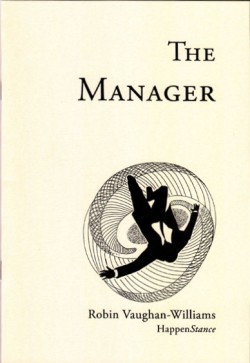In July I ran a series of three workshops in a couple of care homes in Sutton as part of the literature strand of the borough’s Imagine Festival of the Arts, which takes place 16–31 October 2015. Because the Festival’s theme this year is ‘Sutton stories’, we were working around the concept of place, using residents’ memories of Sutton and other places they have lived as material for a series of poems.
It was a great pleasure working with the two groups, who enjoyed sparking off one another and seeing their words written up and re-purposed as poetry. I found that the best way to work was to base the sessions around a loose discussion, with me picking up on some of the things people said, writing those up on the board and asking a few guiding questions to help draw out their memories and experiences. Some of the poems are collective, with contributions from several members of the group, and some are individual in their origin.
I have edited the poems, but they all retain the words and voices of the speakers, and in only a few instances have I added words or lines of my own. The test of this was when we came to video the participants reading their poems; I’d show them the poem first, then ask if they felt it was their own voice, and the response was always a clear yes. One thing I’ve learnt is that memory is selective, with an aesthetic logic of its own—you can trust in the poetry of people’s memory.
We’ll be playing recordings of some of the writing at an event hosted by John Hegley at Sutton Central Library on 24 October 2015, alongside writing produced by younger generations in workshops this September. If you’d like to participate in these, you can sign up to the Spoken Word Workshops on Eventbrite. In the meantime, here are a few of the poems to come out of the project.
He Went to Church
My father bought a television set
from Broughton Radio, aged sixty-five.
One day he walked to church in the snow
sat down in a pew and died.
My mother went to pay the bill
but the technician said his debts were forgiven.
Sunday was a day of rest, and like good Christians
we walked to church in the pouring rain
trying to keep our straw hats dry.
Over Westminster Bridge, the flower lady
on Parliament Square. We let the buses go.
Saved our tuppence for another day.
Source: Joyce Buckingham
Croydon Airport
The airmen used to come down to our house on the corner
to shelter in the garden when the sirens went.
Their melancholy wail and terrible moans
stopped everything. We hid in muddy dug-outs.
No dogs allowed.
When I came out my shoes had gone
along with the house
so a workman lent me his boots.
This was a collective poem fusing together several wartime recollections from participants at Ryelands, but drawing in particular on the memories of Beryl Steward.
Beddington Lane
We lived on a new estate on Beddington Lane
on the site of a pig farm.
Used to go fishing for sticklebacks with my mum
over the Wandle and up the hill
four years old, paddling in the stream with my fishing net.
My dad’s dad lived in Wallington
the gas lights hissing. You had to pull them down
feed a sixpence to the meter
turn the thing round and it went clunk.
Spare coins on the dresser in case the lights went out.
Source: Pam Bollom
Libraries
There is an overwhelming amount of knowledge
in this large room full of books
filled with the voices of children singing
for half an hour on Thursday mornings.
A quiet, meditative space
time to think in silence
look things up, email
and pick up your Freedom Pass.
It’s like passing your A-levels
flying around the world
being on the top of the South Downs
a non-denominational chapel.
This last poem is one of the few pieces resulting from a structured session. We were talking about libraries. I asked about the things people do in libraries, how they’d describe a library, and finally we invented similes for libraries, and you can see pretty clearly how each line in the poem originates from one of these categories.
Thanks to the staff (especially Dawn and Marie) and residents at MHA Ryelands and The Abbeyfield Society, and to Joanna Steele, the Imagine Coordinator, for their enthusiasm and making it all happen.
Tags: Sutton

I love this fusion of memories. Despite not being of the same age group or from the same area I can feel the naustalgic under-current. A lovely project and beautifully put together.